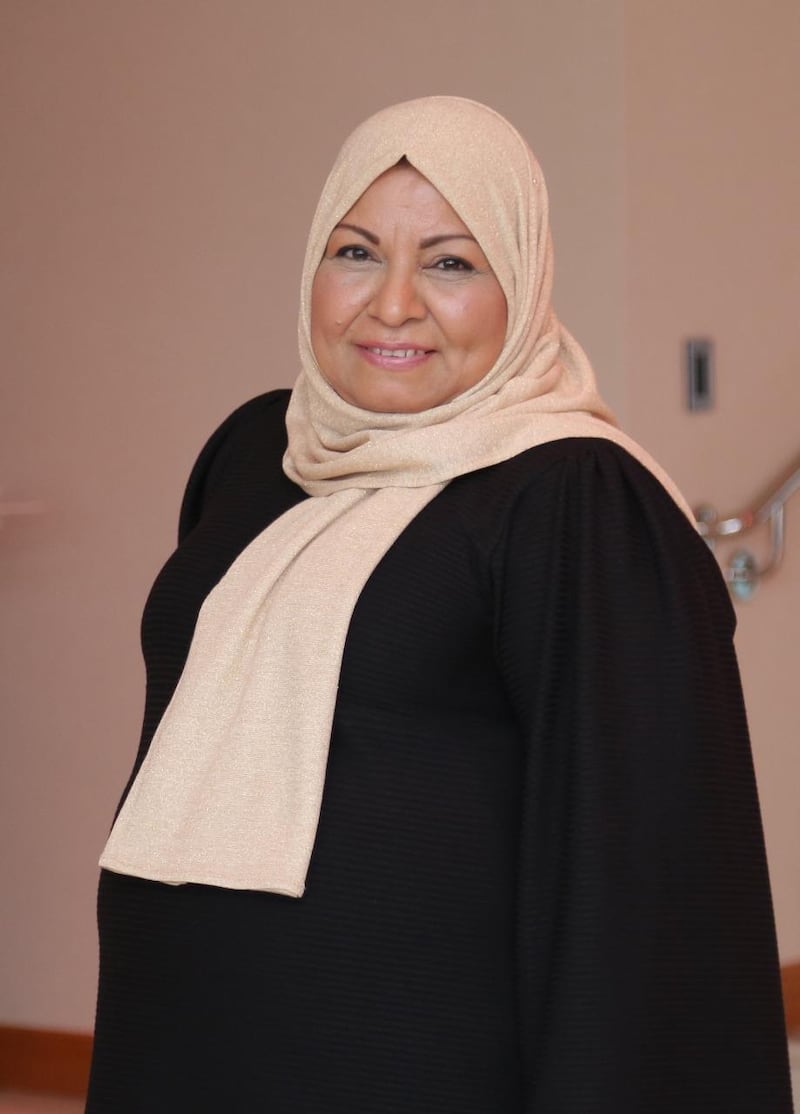A breast cancer survivor who lost her husband to the same disease has urged men and women to get regular scans.
Retired teacher and mother-of-three, Nadia Mitwalli, underwent six years of treatment when she was diagnosed with breast cancer in 2011.
To compound her suffering, the now 63-year-old had already lost her husband Mohammed to breast cancer.
Now Ms Mitwalli, an Egyptian national, has called for men and women to undergo regular screening so it can be caught in time.
“Everyone needs to get tested today. If someone has cancer, treatment is available and accessible. It is not that dangerous any more, it is treatable,” said the Dubai resident.
"They can stop cancer in its tracks at an early stage if is detected in time.”
Breast cancer is thought of as a women's condition but, while rare, it can affect in men. In the UK, for example, there is one new case of breast cancer diagnosed for every 100,000 men (about 350 to 400 cases). Those over over 60 are most at risk.
Her family’s first experience with cancer came when her husband Mohammed was diagnosed in 1999. “Neither of us had any family history with cancer. I was devastated and constantly crying," she said.
"The doctors told us that breast cancer in men was typically aggressive and there needed to be an immediate mastectomy followed by treatment.”
She said the next three years were bleak and they struggled to stay afloat as her husband was the sole breadwinner.
“After my husband passed away in 2002 our lives changed forever. I had to work in order to raise my children and provide them with decent living conditions while they were growing up.”
Ms Mitwalli’s then found a lump on her breast in 2011 and went to the Pink Caravan Ride, an annual roadshow that offers free breast cancer screenings. A biopsy confirmed that it was malignant and the family was once again left to face up to the spectre of breast cancer.
“I was like a rock this time compared to when my late husband was diagnosed,” she said. “I knew I must fight this and come out whole because I had children to raise and a family to support.
“My friends and work were very supportive, the school where I used to work accommodated me during my treatment.”
Her treatment began in 2012 when she undertook chemotherapy and radiotherapy and it did not stop until 2018. Friends of Cancer Patients - a UAE-based society that supports cancer suffers - helped throughout her battle.
“The financial cost was way above my means but the Friends of Cancer covered my treatment costs, as well as offering emotional and psychological support to me and my family,” she said. “I never would have imagined that such a campaign and an organisation would go above and beyond to support cancer patients like this.”
Now after years of suffering and concerns about what lay head, Ms Mitwalli is living for today and life with her children - who are now all in their 30s.
“During my husband’s cancer journey, I was scared and constantly thinking about him, our family, how we could survive this ordeal and how would we manage financially and be able to afford raising young children.”
“Although I’m suffering from diabetes and blood pressure, I appreciate every day and try to achieve as much as possible. I feel fine,” she said.








